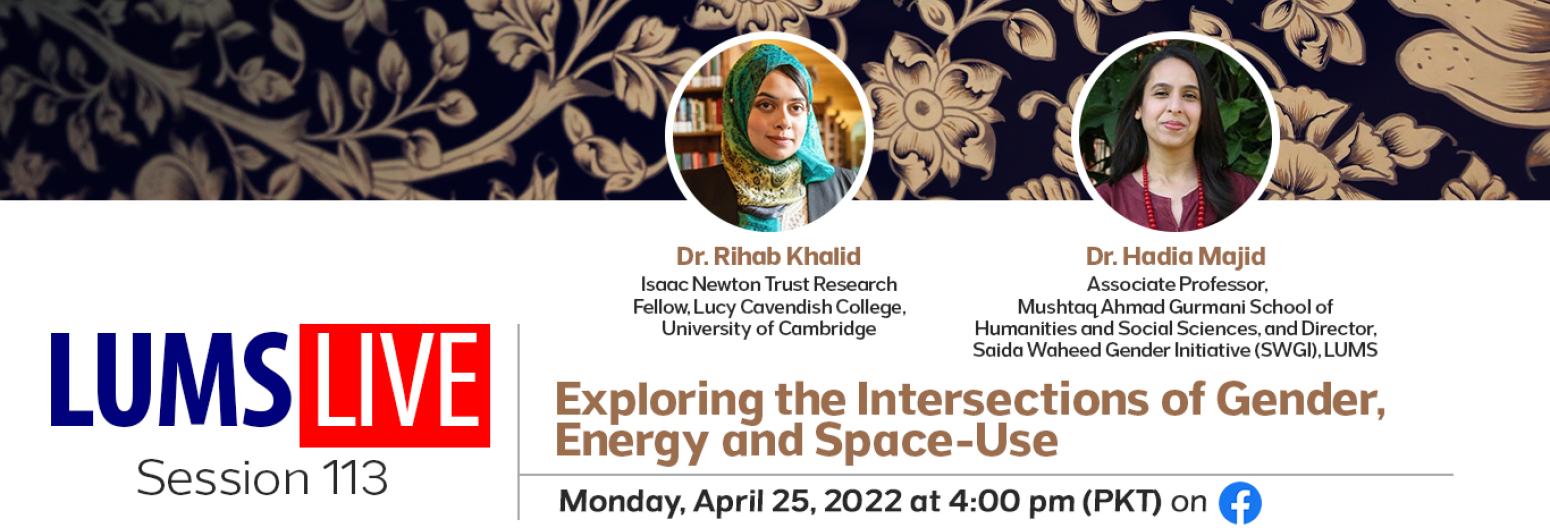
April 25, 2022
The discussion will explore some of the impacts of current spatial configurations and household technologies on women’s domestic energy and space-use. It challenges current gender-neutral/binary approaches in housing and energy and calls for further socio-technical investigations at the intersections of gender, energy and space-use for improved equity and sustainability.
Drawing on interviews with middleclass homeowners in Lahore and Amman, Dr. Rihab Khalid unpacks some of the critical factors that result in women’s differential agencies, spatial affordances, and contingent flexibilities in managing domestic energy demand.
Hosted in collaboration with the Saida Waheed Gender Initiative (SWGI), the session will be moderated by Dr. Hadia Majid.
About the Panelists
Dr. Rihab Khalid
Dr. Khalid is an interdisciplinary researcher working on the socio-technical intersections of gender, energy infrastructure and space use in the Global South. A recipient of the Cambridge Trust Scholarship for a PhD in Architecture, she has worked on numerous collaborative research projects with national/international organisations including LUMS, HRC-UMT Lahore, UET Peshawar, Women in Energy Pakistan, GSI-ARU, Aalborg University, UKERC and BEIS UK.
Dr. Hadia Majid
Dr. Majid’s research agenda considers the impact of monetary and public resource constraints on individuals in Pakistan. Her work includes cash transfer evaluations, public goods provisioning, household decision-making, and factors affecting women’s labour supply and their access to decent, empowering work. Dr. Majid has published in international journals and is currently editing a book titled Gender at Work in Pakistan. She has received grants from several agencies including ESRC-DFID, IDRC, IGC, Oxfam, IFPRI among others and has acted as a consultant for numerous government and non-governmental agencies on gendered labour market outcomes.



















